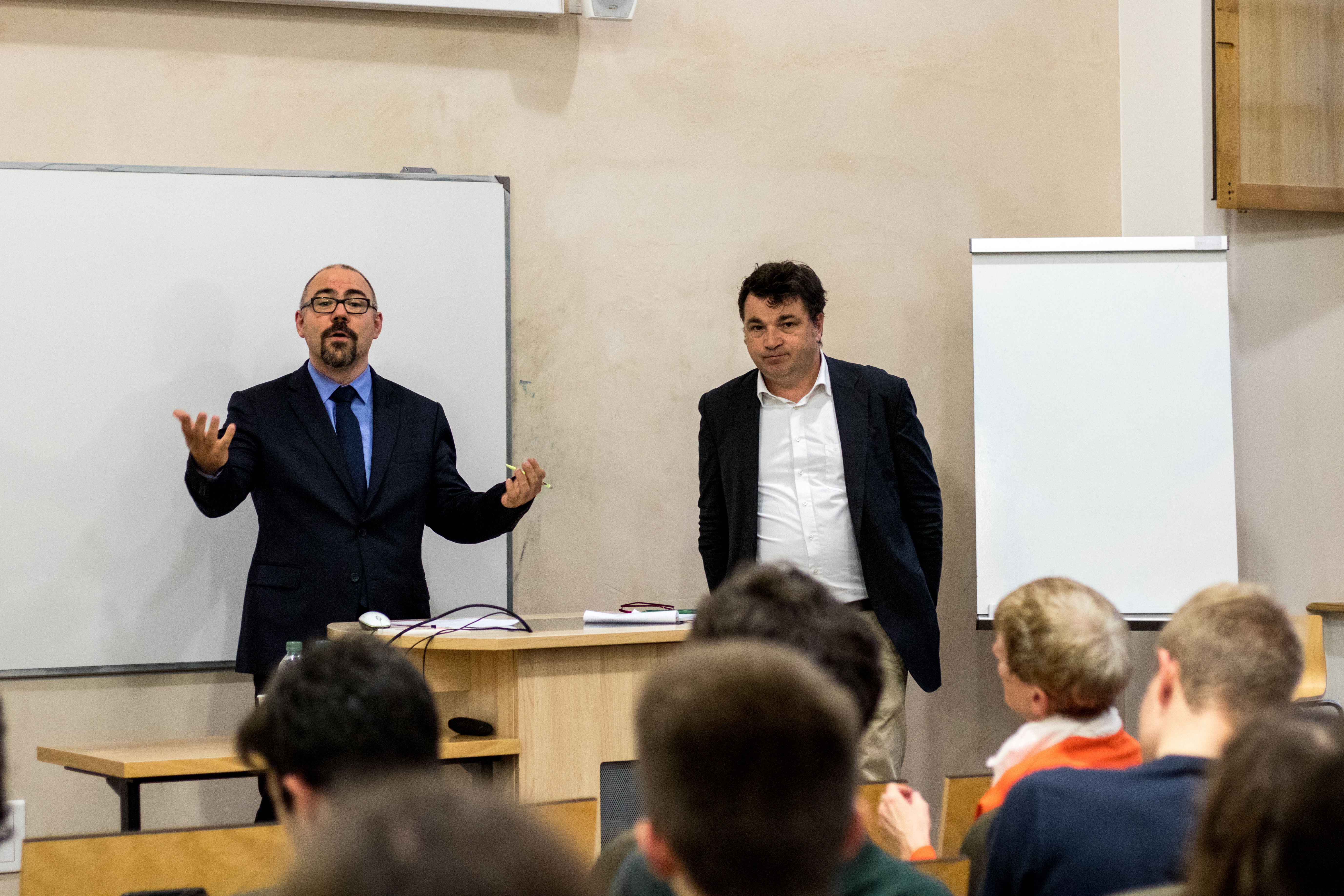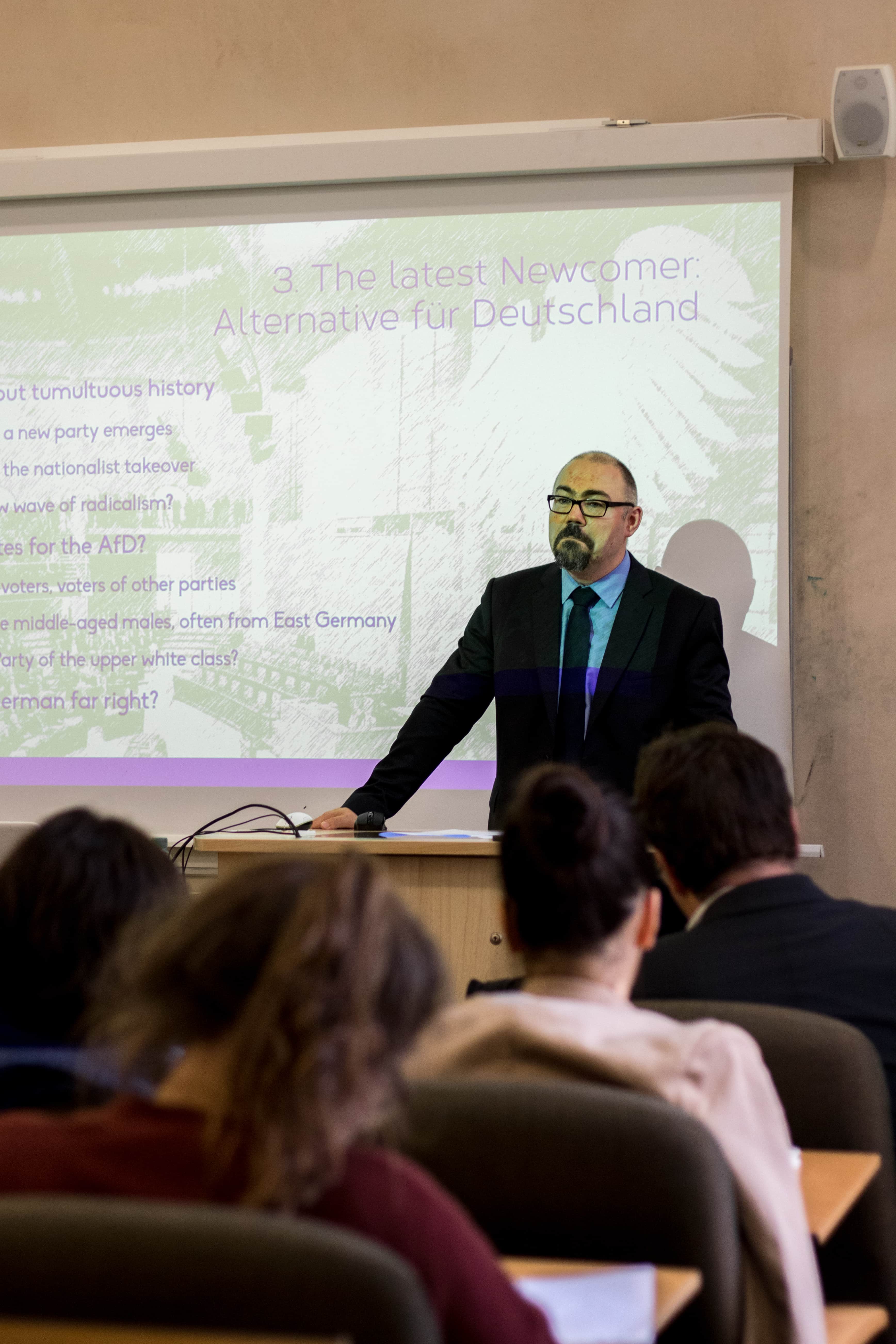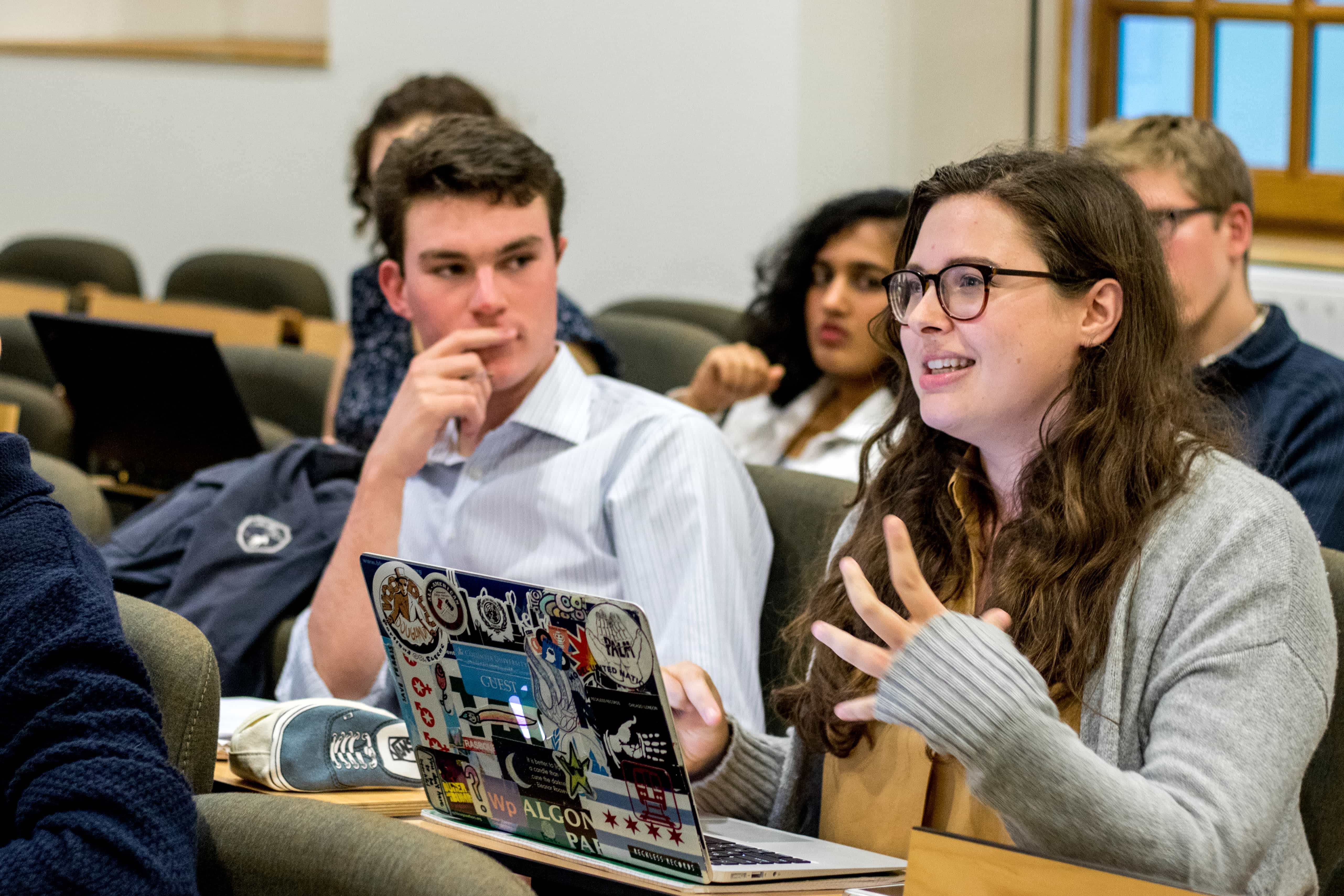By Jacob Hartley
No major surprises were seen the night of the recent German elections, according to most pundits and pollsters observing what some call the “re-coronation” of Chancellor Angela Merkel. An event hosted by the Jeunes Européens on September 27 presented findings from Dr. Christian Roques from the Université de Reims-Champagne-Ardenne and Dr. Jakob Vogel from Sciences Po’s Paris Campus on the election.
The two professors discussed their own views on Angela Merkel’s future, the rise of populist movements on both the left and right, and the sharp rise of nationalist groups such as the Alternative für Deutschland (AfD). Facts regarding the results were given before the two professors’ lectures, some of which were deeply interesting and telling.
This will be the largest parliament in the history of the Bundestag, as 709 members will take their seats when the new government is formed. According to Roques, this is because German citizens vote for their candidate of choice, followed by voting for their preferred political party, all on the same ballot. This unique aspect of German politics can cause the party with the most votes to place more members in the parliament than the actual amount of those elected.

- Dr. Christian Roques (left) and Dr. Jakob Vogel (right) speak at an event hosted by the Jeunes Européens. Photo: Krystof Stupka//The Sundial Press
The conversation quickly focused on the AfD, and a breakdown of its electoral success. Notably, the AfD gathered eight percent more of the national vote this cycle than the previous cycle, closely mirroring the nearly nine percent drop in nationwide support for the CDU/CSU Union, which is the coalition that Merkel leads.
Roques opened with an interesting observation of the extreme-right, ultra-nationalist Nationaldemokratische Partei Deutschlands (NPD), the party sometimes noted by observers as being anti-Semitic and even composed of neo-nazis. The irony, as Roques stated is that “the democratic part (of the NPD’s name) is just a joke.” they are, essentially, the neo-nazi

Roques explains how the nationalist resurgence of this year’s election may spell bad news for Chancellor Merkel in the near future. Photo: Krystof Stupka//The Sundial Press
Roques explained the vast changes in the power brokerage of the Bundestag from the 1960s to present day from a “two-and-a-half party system to a multi party system” ranging from “the FDP deciding who governed” in the 1960s and 1970s, to “the strange event that happened” when the Greens entered the parliament in more casual attire in the 1980s, to the present day fluid five-or-six-party system. The most recent milestone in the Bundestag, Roques noted, was the arrival of the AfD in 2012, led by their leader, Bernd Lucke, a Professor of Economics in Hamburg.
Known as the “professors party…critic voice of immigration” when it was conceived, the party has transformed into a populist party whose base is mainly composed of “people who have never [voted] or stopped voting before, former Union (CDU, CSU) members, white, middle-aged men, and the less educated than most party” according to Roques. When asked by a member of the audience if this was a more recent neo-nazi party, he responded simply “no, not yet.”

Vogel offers his bold analysis of Germany’s political future, stunning some in the audience. Photo: Krystof Stupka//The Sundial Press
Vogel began with a rather bold analysis of the election, summed up in one statement: “European issues were simply absent from this election.” The fact that EU issues were missing from the conversation, he said, “could be a sign of general consensus – it is not necessary to speak on these things.”
When asked during the question and answer period what saved Angela Merkel this election cycle, Roques stated that “the good economic condition helped at first,” but towards the end of the campaign “the economy seemed to be trumped by migrant talk.” This is in reference to the current crisis Germany faces with migrant and refugee placement.
Roques noted that German political parties are also “particularly interesting and unique,” as most Germans are “born into a party, with a unique familiar connection.” This of course, is one of the reasons why the Union has managed to maintain a strong hold on the Bundestag since the 1960s.
Dylan Richter, Euram 1A, who is a German citizen, concurred, saying that “there is a connect we have to parties in Germany… it is not like France where people just choose the party they hate least.”
Richter added that “the presentation was put into a historical, long term perspective” but that “it ignored the small factors that also mattered.” Richter agrees with the “unsure position of the FdP” and its future, like the professors stated, but he disagreed with their prognosticating stating” so much is left up in the air to make guesses.”
Other posts that may interest you:
- The Trouble with ‘Ecocide’
- Carbon dioxide removal – hit or miss?
- Local Victories for Turkish Opposition — A Sign of Hope?
- Are France and Japan a Mismatch Made in Heaven?
- A Reflection on Dark Tourism
Discover more from The Sundial Press
Subscribe to get the latest posts sent to your email.





